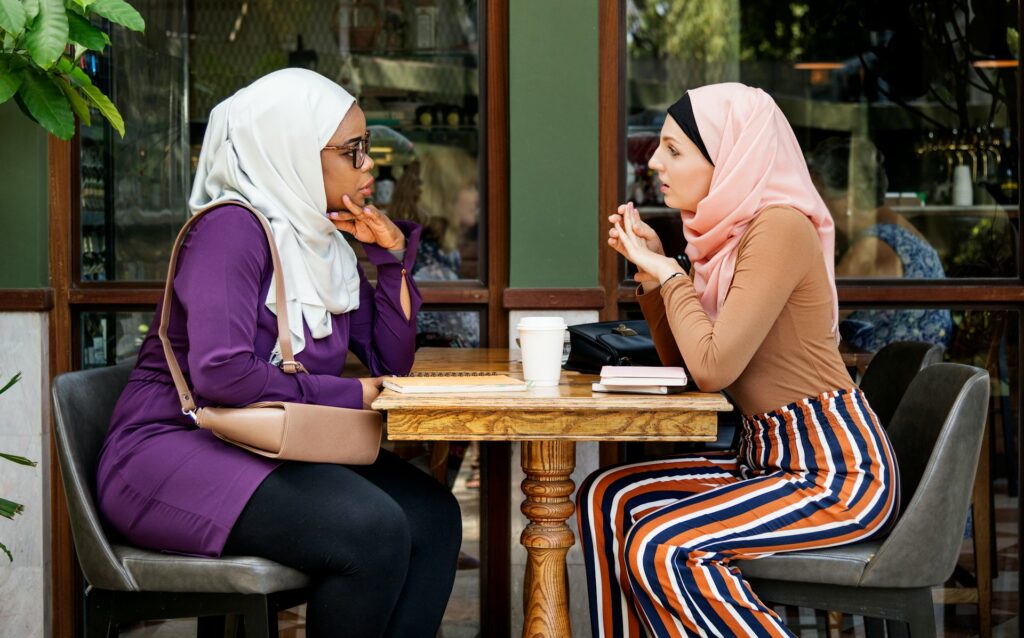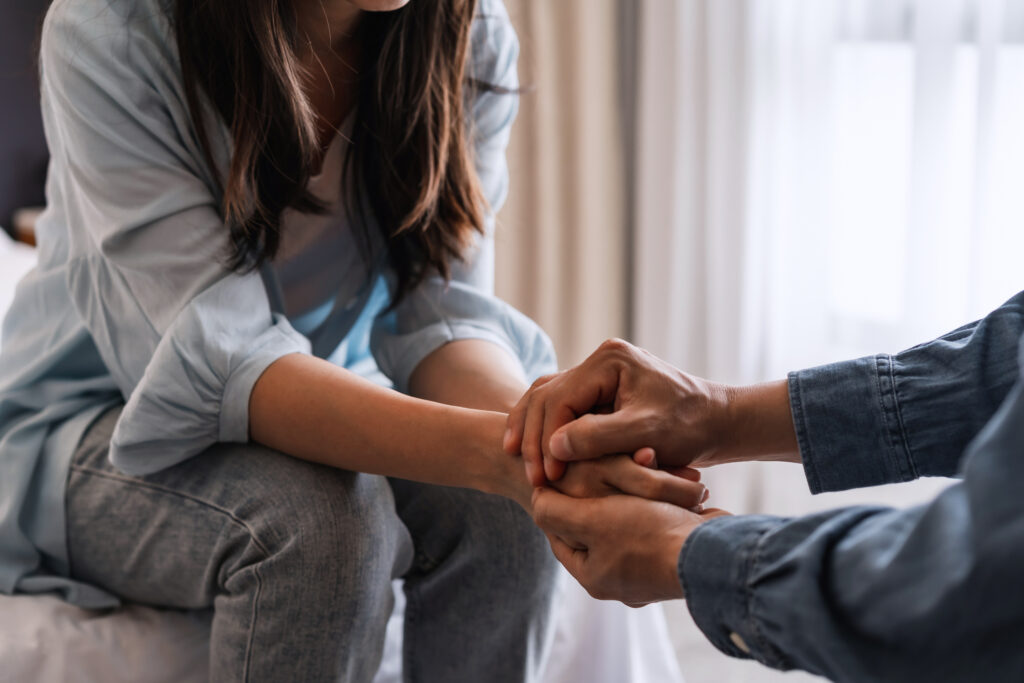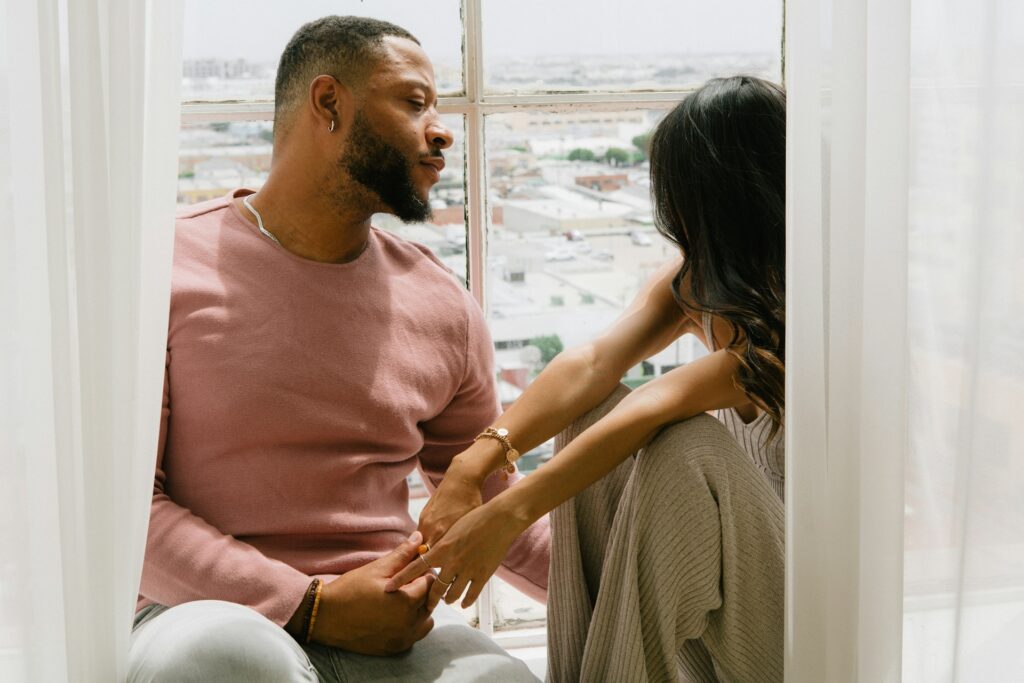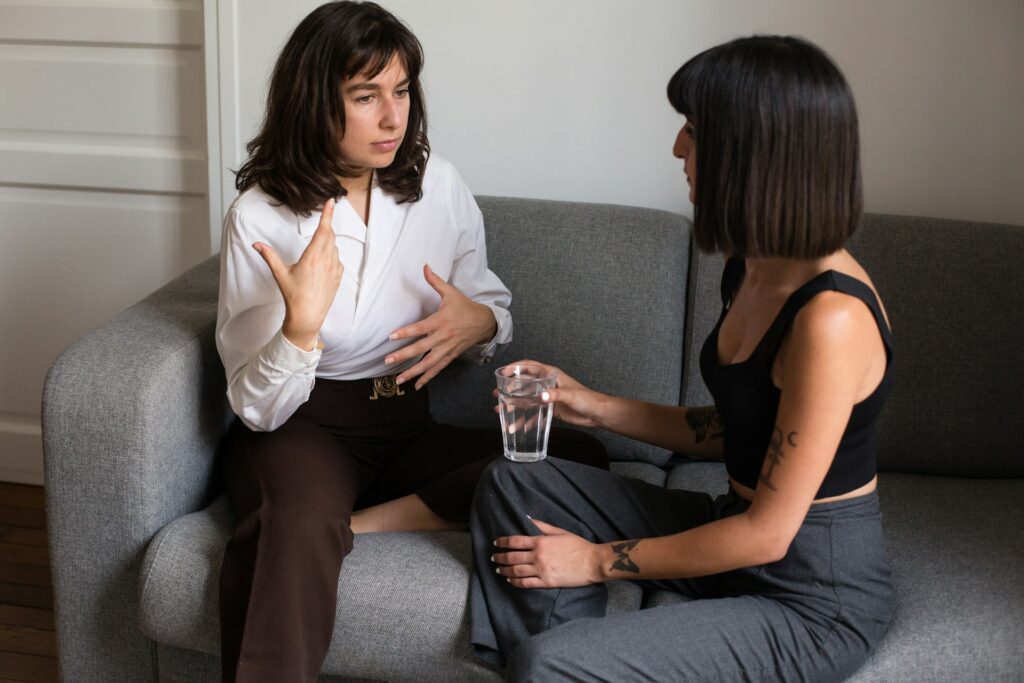Opening up about how you really feel can be terrifying, especially when you’ve done it before, and it’s backfired.

The truth is, not everyone deserves access to your inner world. Some people handle vulnerability with care, while others treat it like gossip fuel or an emotional burden. So how do you know who’s safe to confide in? These signs usually mean you’re talking to someone you won’t regret trusting. Your secrets—or even just your tough emotions—are probably safe with them.
1. They don’t immediately try to fix you.

The best listeners know that you don’t always want advice—you just want to be heard. If someone sits with your feelings without jumping in to solve them, that’s a good sign they respect your emotional space. It’s about presence, not performance. When someone can hold silence without rushing to patch things up, it shows maturity. You’re not a problem to fix, after all. You’re a person who sometimes just needs to say things out loud without being interrupted by solutions.
2. They’ve kept your past confidences.

It might sound obvious, but if someone has a track record of keeping things private, that’s a massive green flag. Think about what they’ve done with your vulnerable moments before. If they’ve never weaponised or shared them, they’ve earned a little more trust. When you can’t recall a single time they betrayed your confidence, that speaks volumes. It means they understand the weight of what you’re handing over when you open up, and they treat it with the respect it deserves.
3. They don’t centre themselves in your story.

If you’re opening up, and they’re constantly bringing it back to their own experiences, it might feel like you’re just background noise. A safe person lets your moment stay yours without making it about them. It’s not that shared stories aren’t valuable, but timing matters. If they always seem to reroute your vulnerability into a monologue about their own past, you’ll leave the conversation feeling invisible.
4. They check in afterwards.

A lot of people say, “You can talk to me anytime,” but the ones who actually follow up the next day or week? That’s rare. If someone checks in after a heavy conversation, it shows they weren’t just passively listening—they genuinely care. It doesn’t need to be a big emotional gesture. A simple “Hey, I’ve been thinking about what you said—how are you doing now?” is enough to show they didn’t forget your words the second you walked away.
5. They don’t get awkward or change the subject.

Not everyone is comfortable with deep emotions, and that’s fair, but when someone can stay present during your difficult moments without fidgeting, laughing nervously, or quickly changing the topic, that’s worth noting. It means they can tolerate emotional depth, which is crucial for safe connection. You shouldn’t feel like you have to soften your truth just to protect someone else’s discomfort.
6. They never use your vulnerability against you.

If you’ve ever confided something tender and had it thrown back in your face during a disagreement, you know how damaging that is. Safe people don’t turn your honesty into ammunition. Even in moments of conflict or frustration, someone who’s trustworthy won’t resort to low blows. They respect the difference between emotional honesty and leverage, and they never confuse the two.
7. They’re emotionally consistent.

It’s hard to feel safe opening up to someone who’s hot and cold with you. If you never quite know what version of them you’re going to get, that inconsistency creates emotional tension—and makes honesty feel risky. People who are emotionally stable and steady make it easier to be vulnerable. You don’t have to second-guess their reactions or brace yourself for unpredictability every time you share something real.
8. They listen without making assumptions.

Some people hear what you say and immediately start drawing conclusions, even if you never said those things. It’s frustrating, and it shuts down openness fast. However, safe people don’t fill in the blanks for you—they let you define your own experience. They ask questions instead of jumping to conclusions. They don’t twist your words to fit their own narrative. That kind of clarity makes you feel safe to keep talking because you’re not constantly on defence.
9. They respect your boundaries without sulking.

If you say, “I don’t want to talk about that right now,” and someone backs off without pouting or pressuring you, it’s a strong sign they respect you. They know that connection doesn’t mean entitlement to every detail of your life. Respecting your timing shows emotional maturity. It means they’re not just there for the juicy bits—they care about your comfort more than their curiosity.
10. They let you feel without rushing you through it.

When you’re upset, anxious, or overwhelmed, the last thing you want is someone telling you to “calm down” or “look on the bright side.” Safe people let you sit in those feelings without trying to speed up the process. They don’t force silver linings or push you to be okay before you’re ready. They trust that you’ll get there in your own time, and they’re willing to sit with the discomfort until you do.
11. They don’t gossip about other people’s pain.

This one’s easy to miss, but important. If someone regularly shares other people’s struggles, what makes you think they won’t share yours? It’s not just about discretion; it’s about whether they understand emotional privacy in general. People who know how to keep other people’s stories sacred are usually the ones who’ll do the same for yours. If they speak respectfully even about people who aren’t in the room, that’s a good sign they’re a safe place to land.
12. They make you feel like your feelings are valid.

Even if they don’t totally get it, they don’t brush you off. They don’t call you “too sensitive” or imply you’re overreacting. They treat your emotions as real and understandable, even if they’re messy. Validation doesn’t mean they agree with everything you say—it just means they see your experience as legitimate. That alone can make a huge difference in whether you feel safe enough to be open.
13. You feel lighter after speaking to them, not exposed.

After you’ve opened up, the real test is in how you feel. Do you walk away feeling held, or do you spiral into shame and second-guessing? That post-convo gut check is often the clearest sign of all. If you consistently feel calmer, clearer, or more grounded after talking to someone, that’s your cue. Some people carry your truths carefully. Others leave you regretting you ever said a word. Trust your body’s reaction—it usually knows before your brain does.


